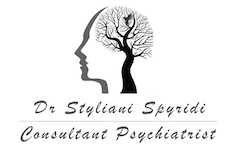*By Dr. Styliani Spyridi, Consultant Psychiatrist | Private Psychiatry Clinic, Limassol When people think about…

How Parents’ Trauma Leaves Biological Traces in Children
Adverse experiences can change future generations through epigenetic pathways
After the twin towers of the World Trade Center collapsed on September 11, 2001, in a haze of horror and smoke, clinicians at the Icahn School of Medicine at Mount Sinai in Manhattan offered to check anyone who’d been in the area for exposure to toxins. Among those who came in for evaluation were 187 pregnant women. Many were in shock, and a colleague asked if I could help diagnose and monitor them. They were at risk of developing post-traumatic stress disorder, or PTSD—experiencing flashbacks, nightmares, emotional numbness or other psychiatric symptoms for years afterward. And were the fetuses at risk?
My trauma research team quickly trained health professionals to evaluate and, if needed, treat the women. We monitored them through their pregnancies and beyond. When the babies were born, they were smaller than usual—the first sign that the trauma of the World Trade Center attack had reached the womb. Nine months later we examined 38 women and their infants when they came in for a wellness visit. Psychological evaluations revealed that many of the mothers had developed PTSD. And those with PTSD had unusually low levels of the stress-related hormone cortisol, a feature that researchers were coming to associate with the disorder.
Read the whole article by the original source through the link below:



